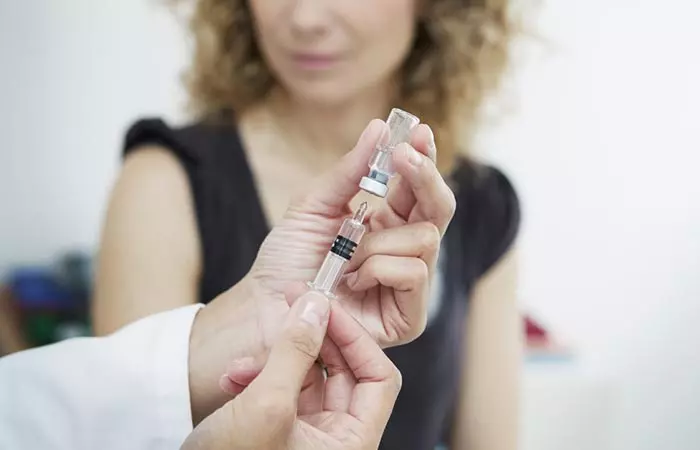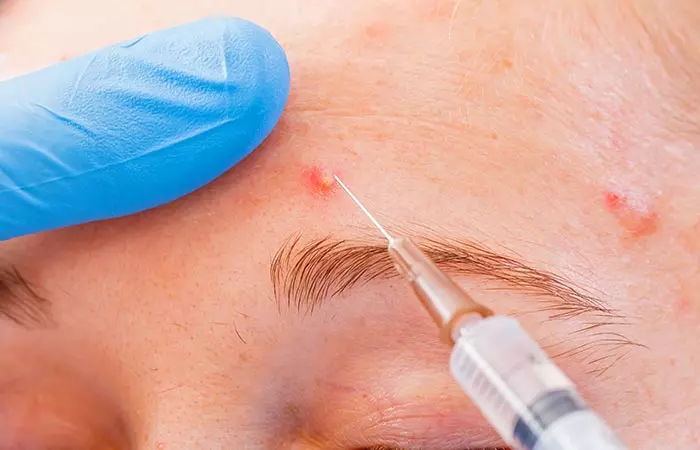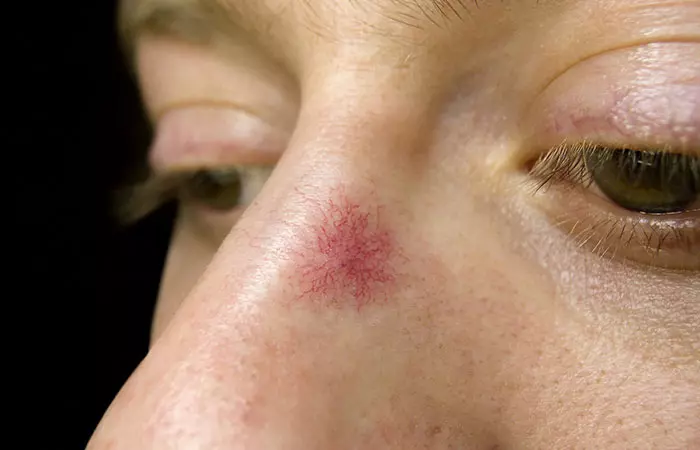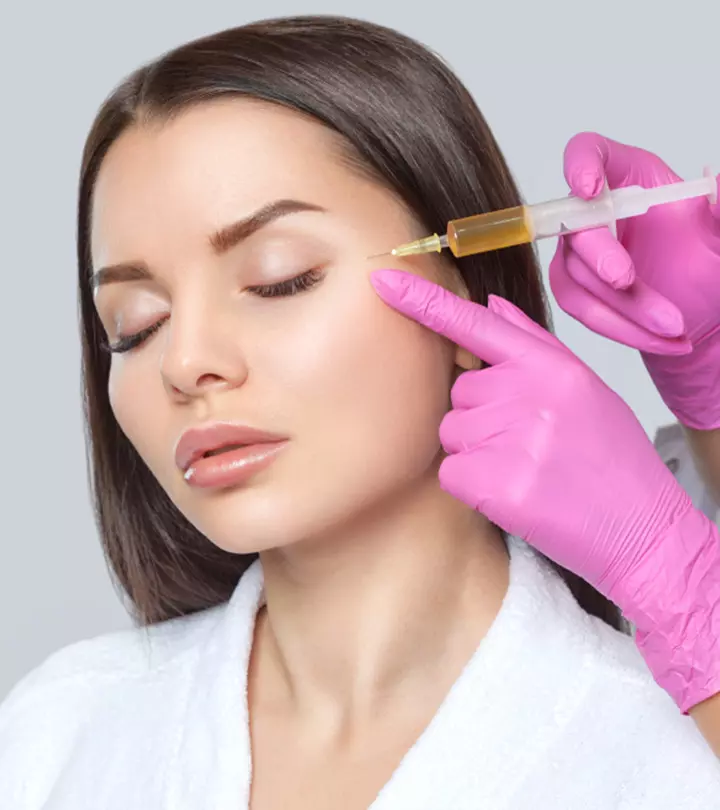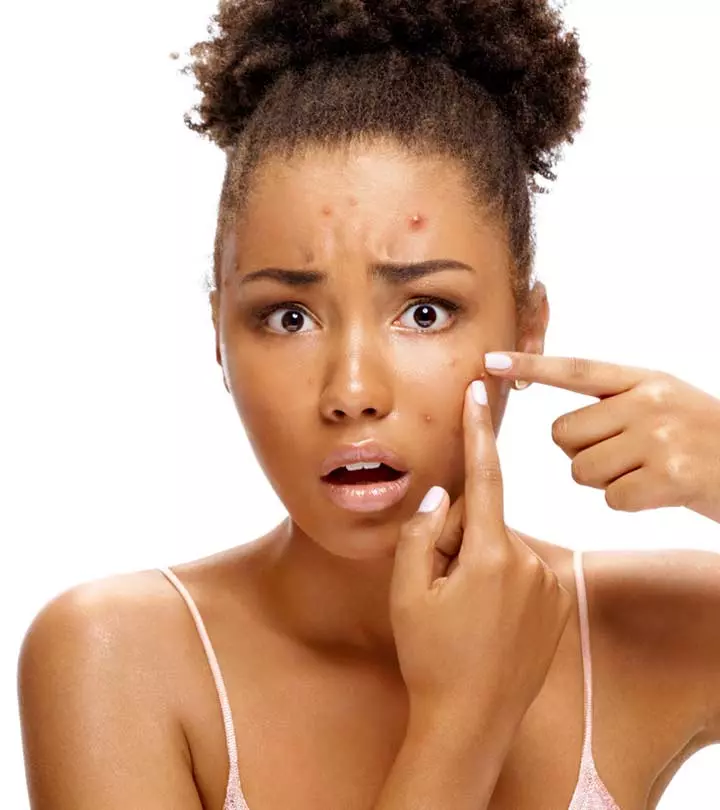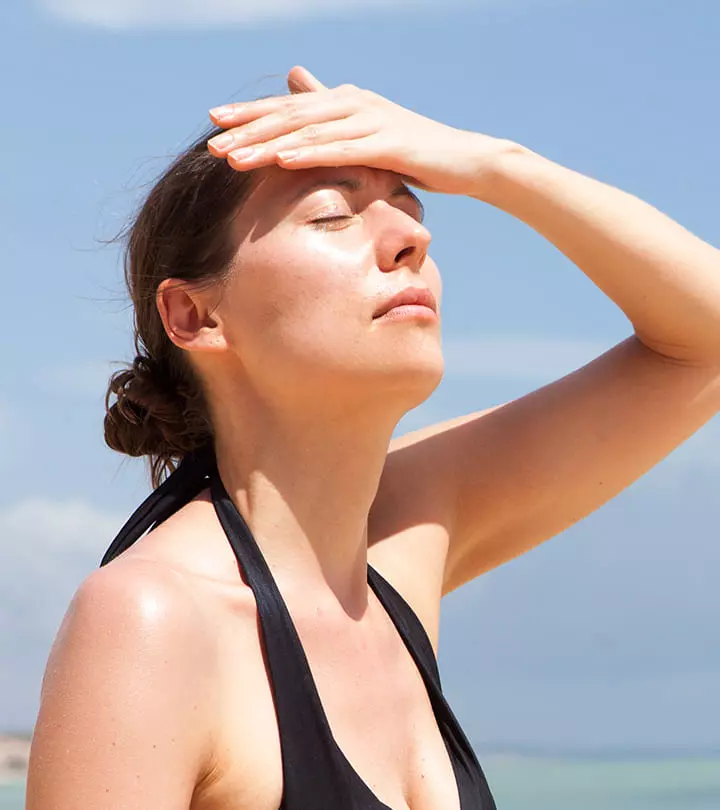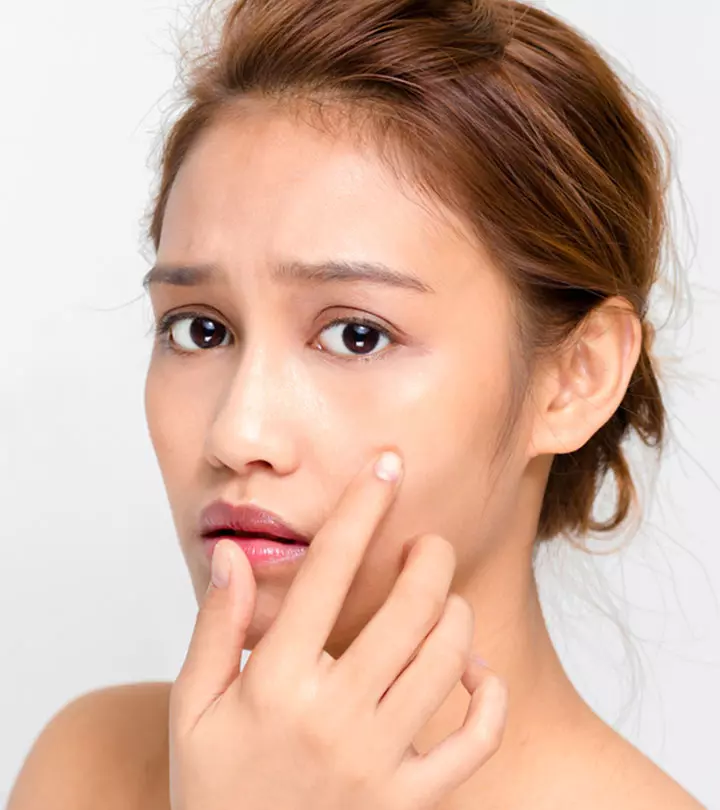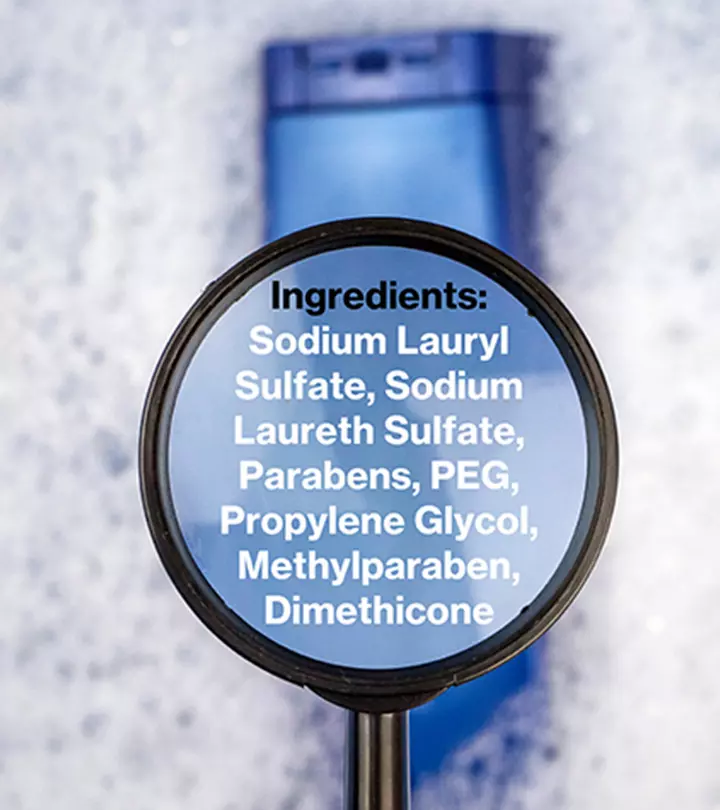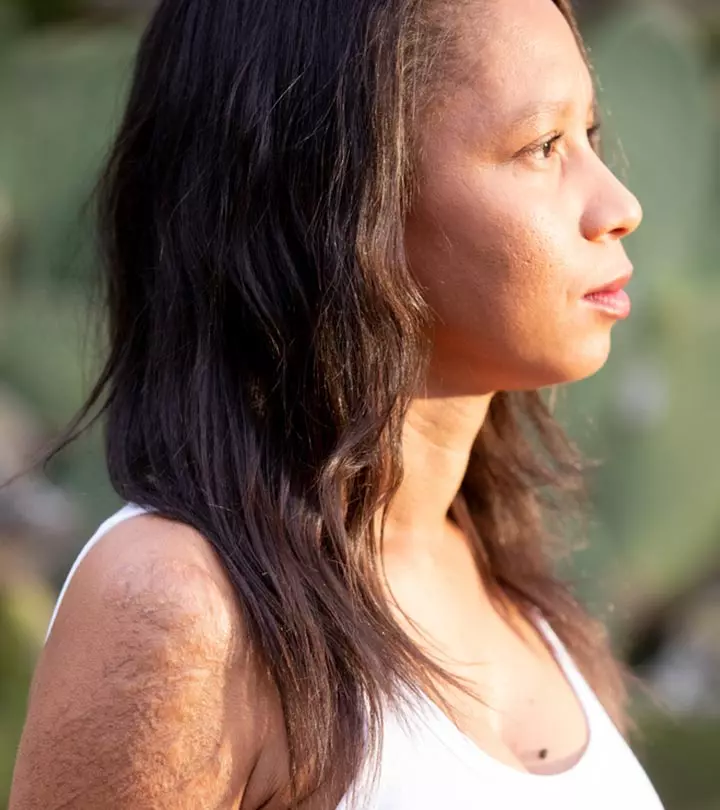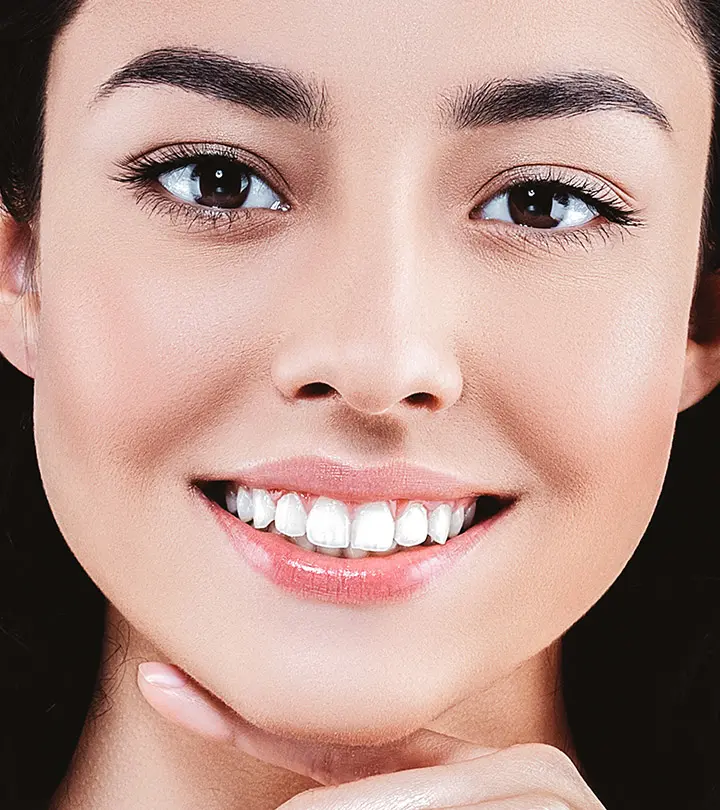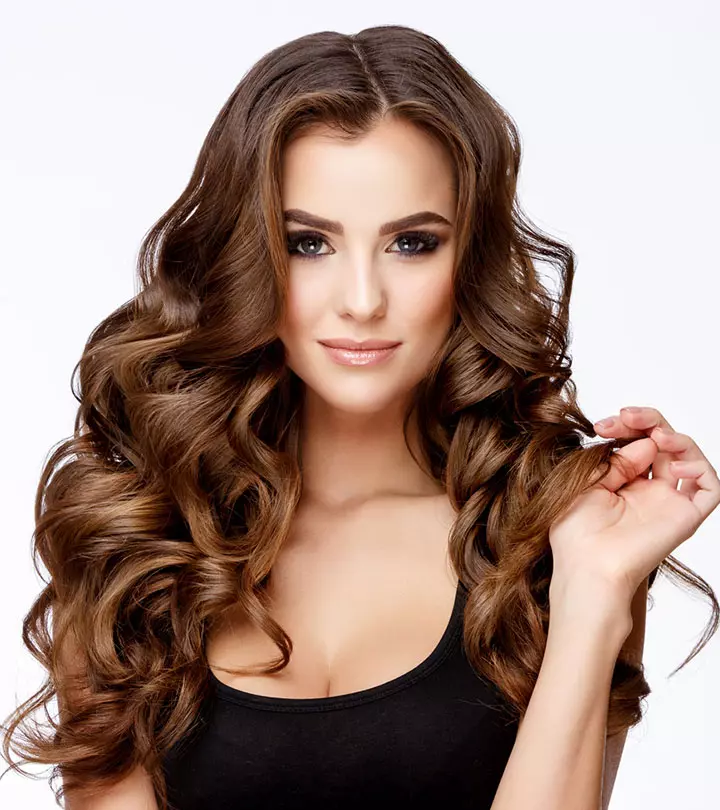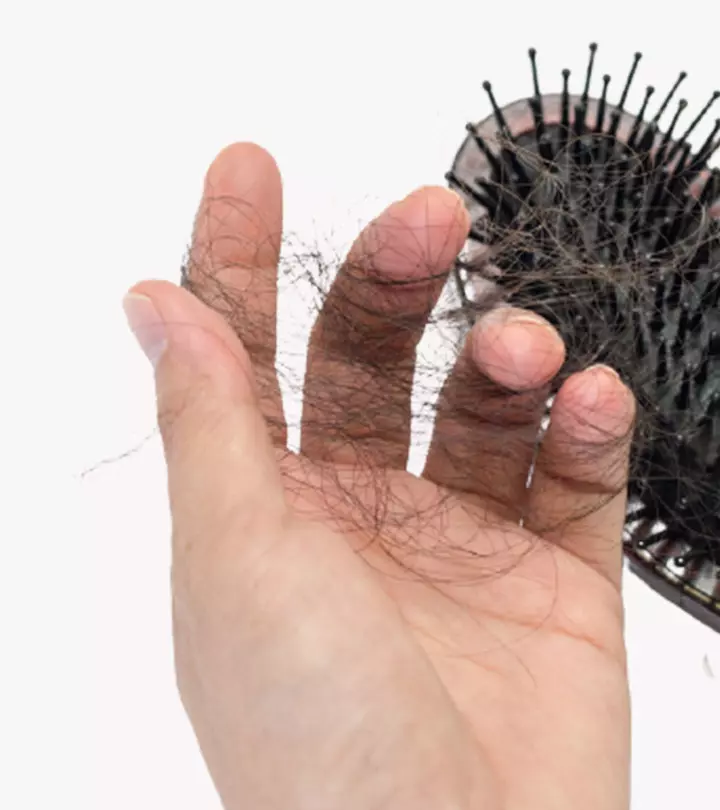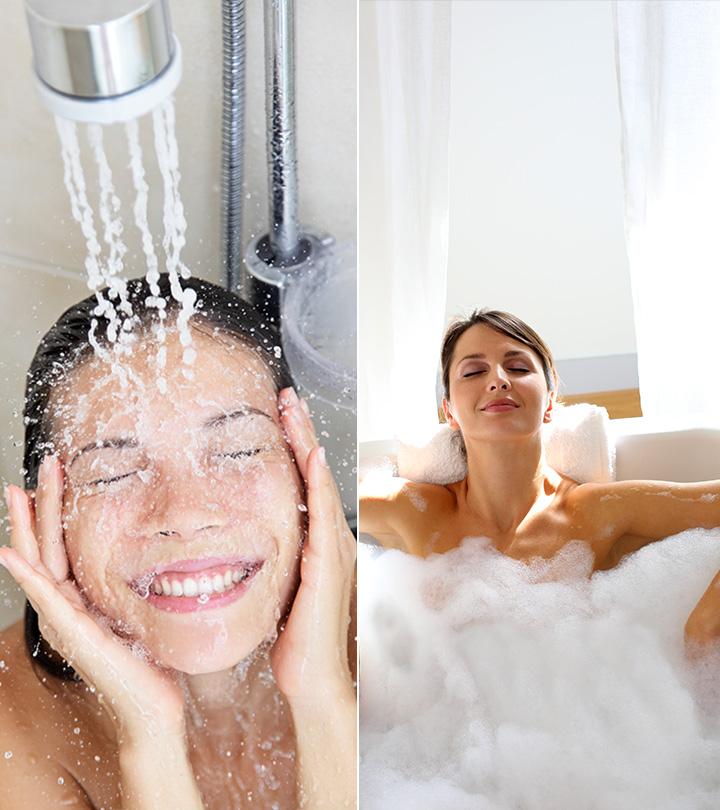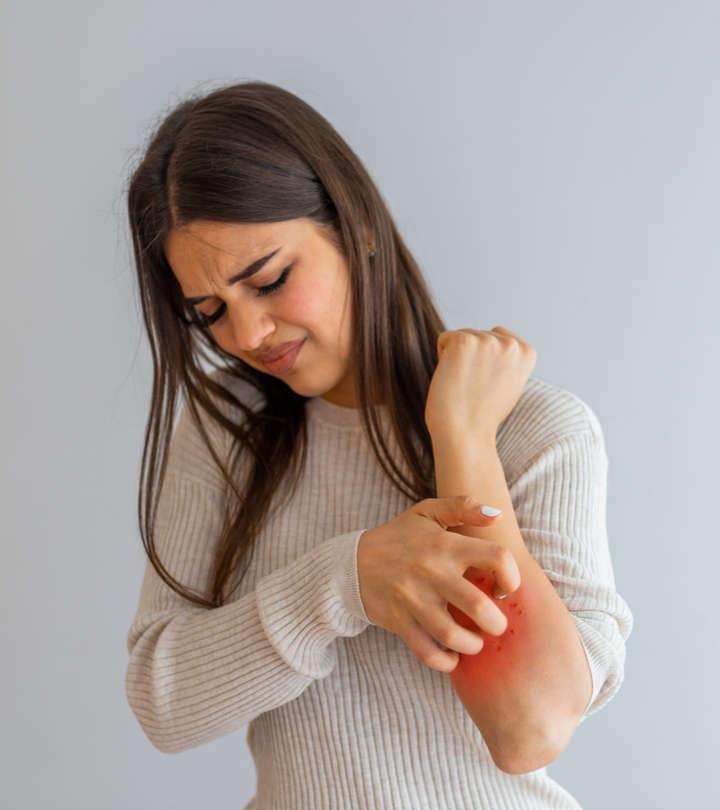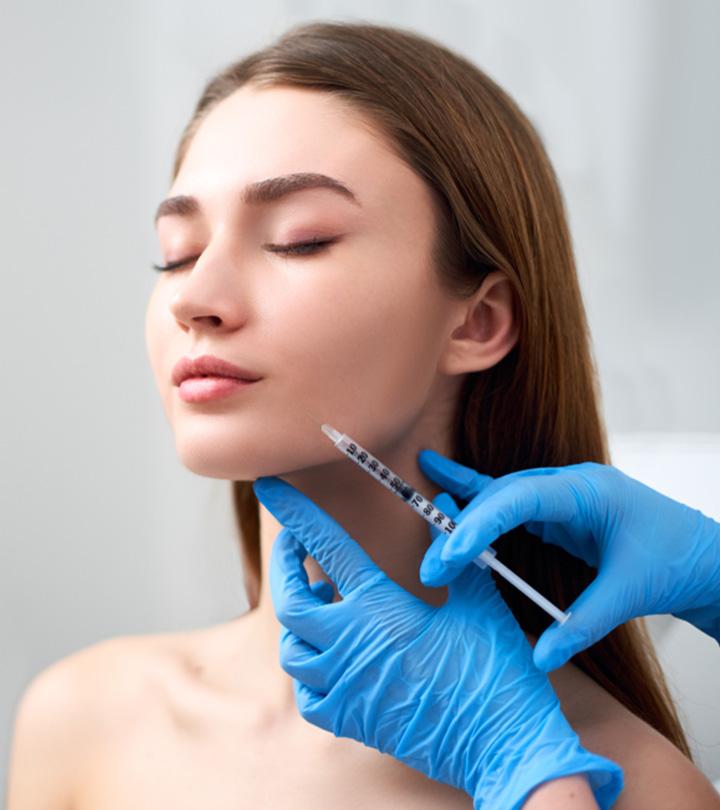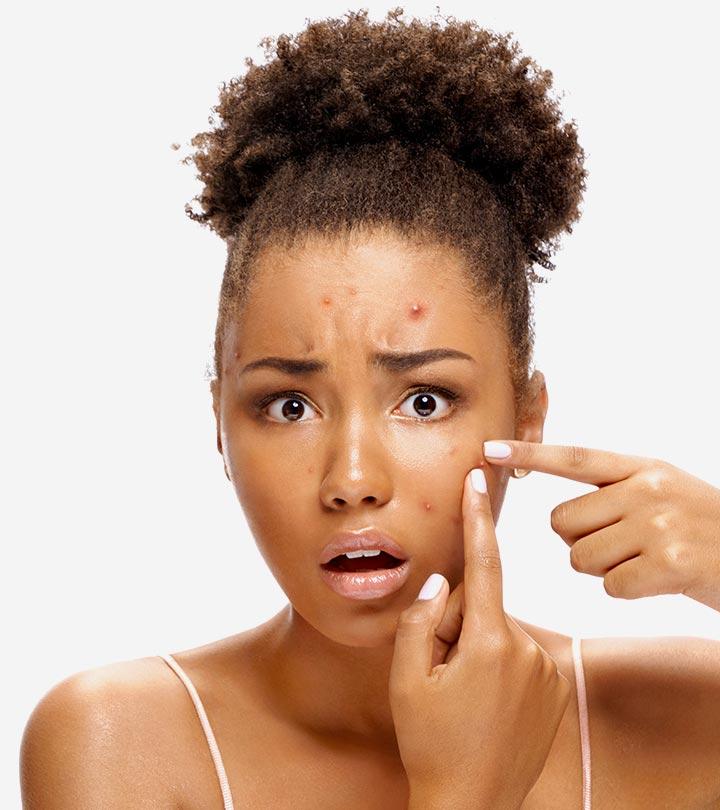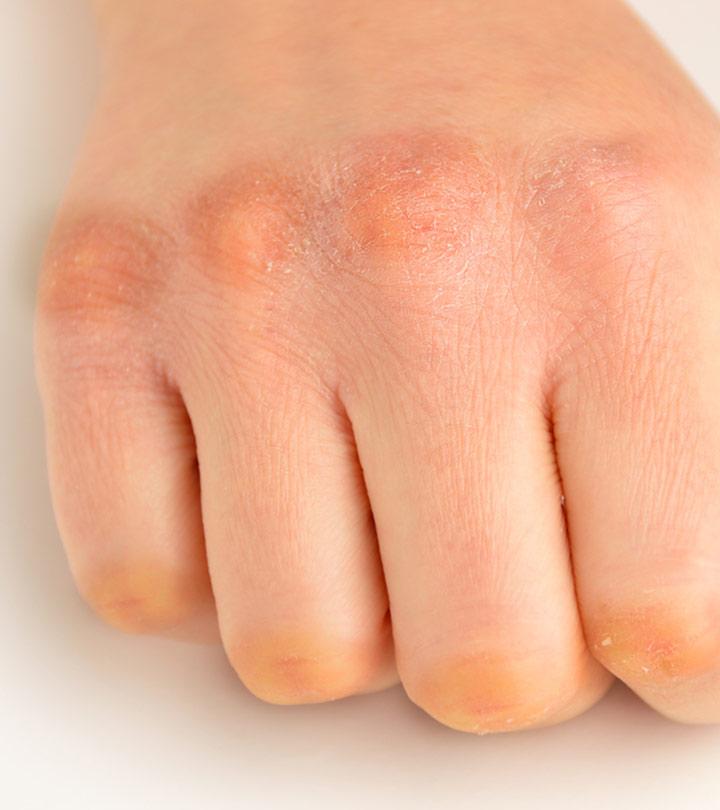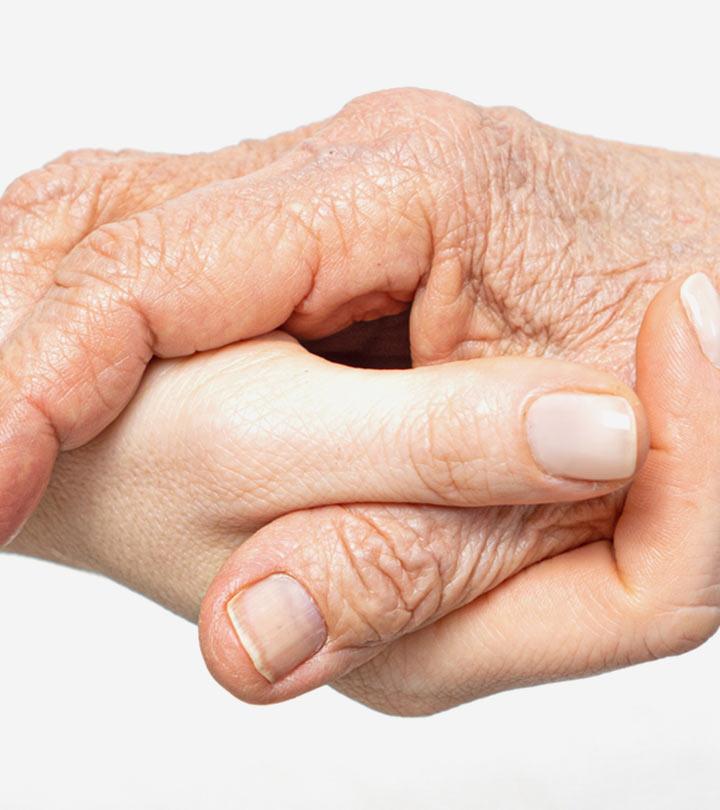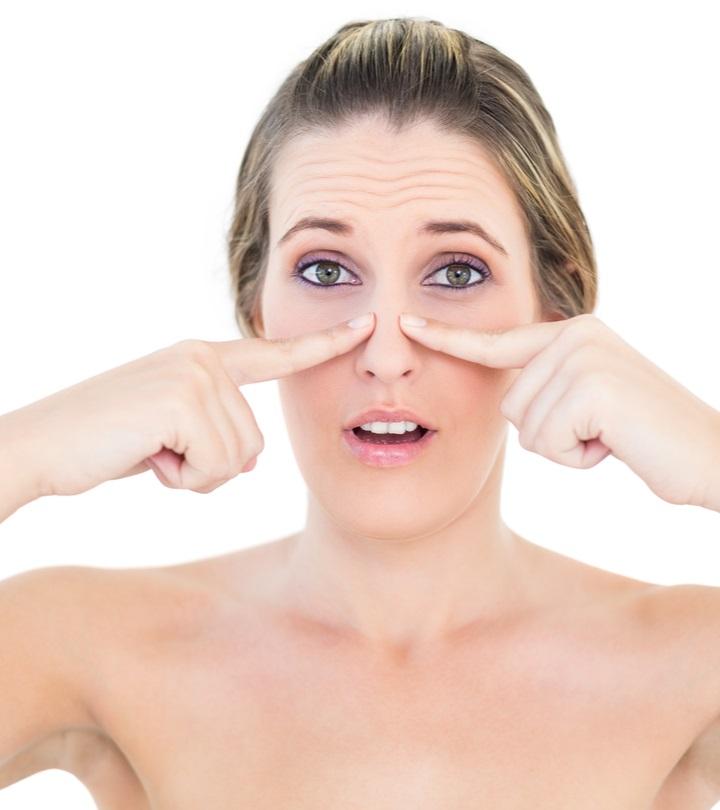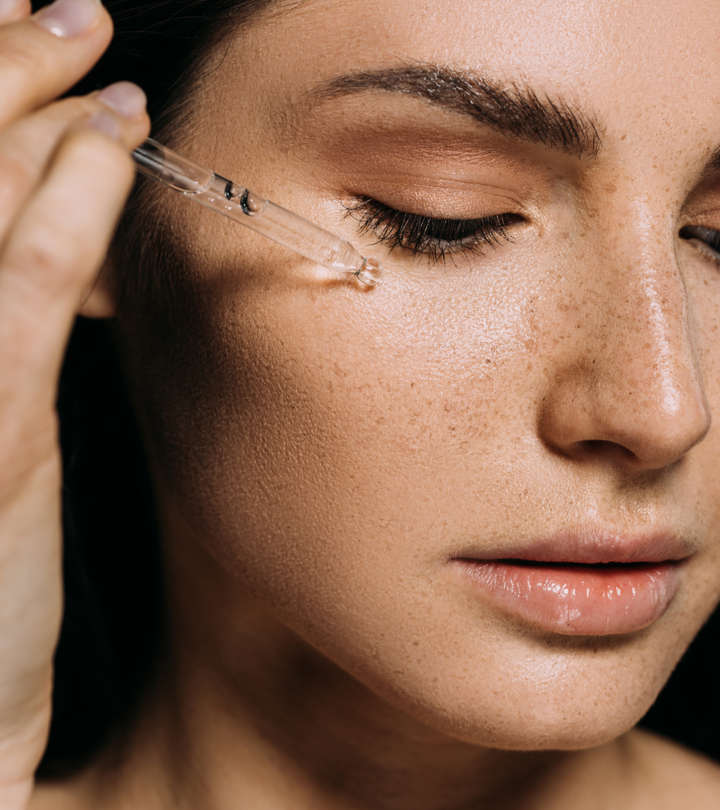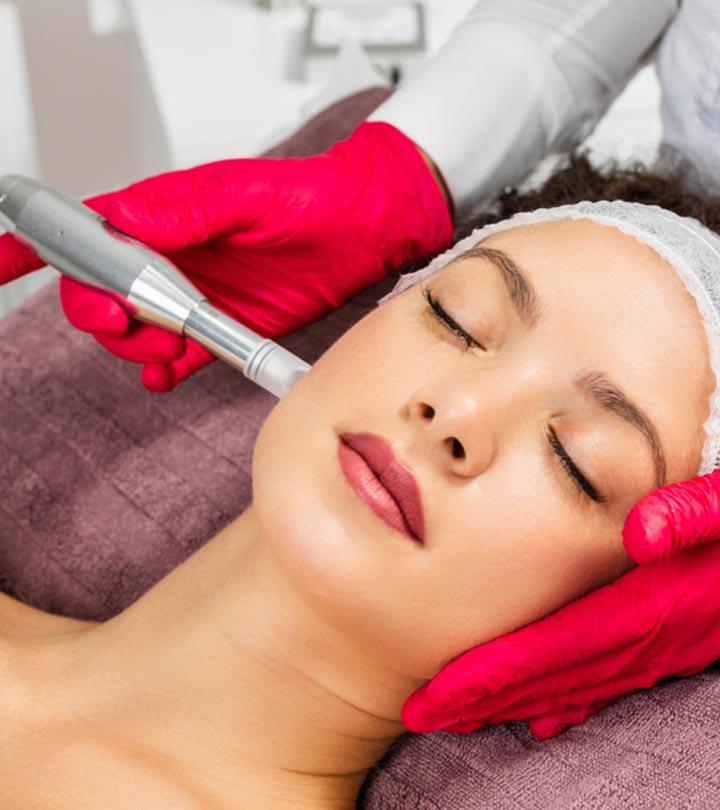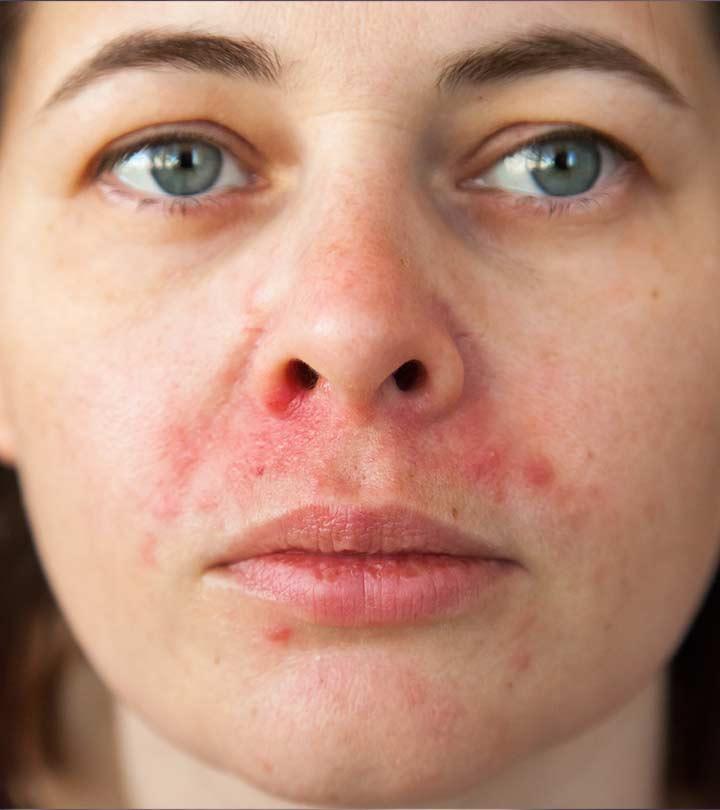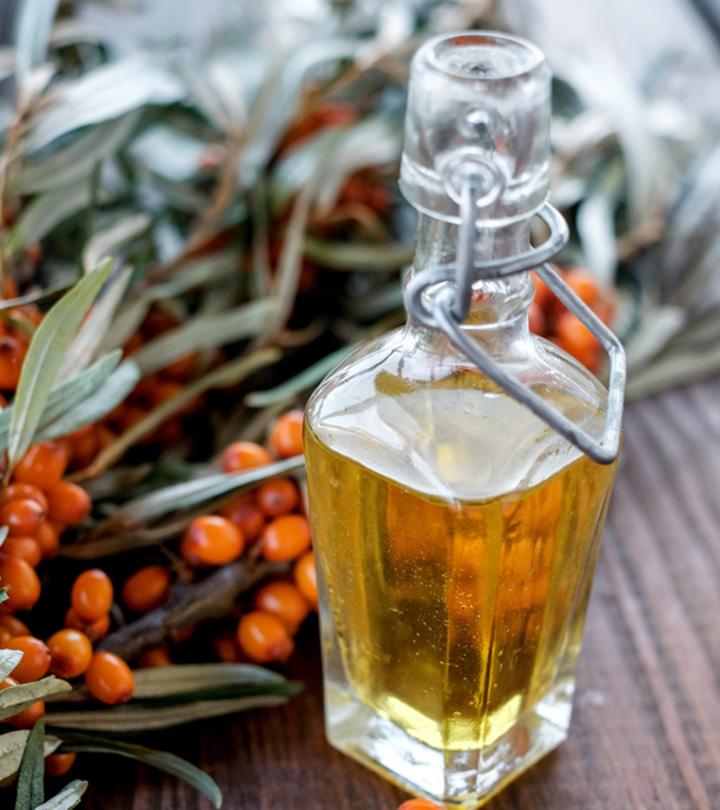Cortisone Shot For Acne Treatment: Benefits And Side Effects
Take time to learn about the associated risks before getting ready to eliminate the zits.
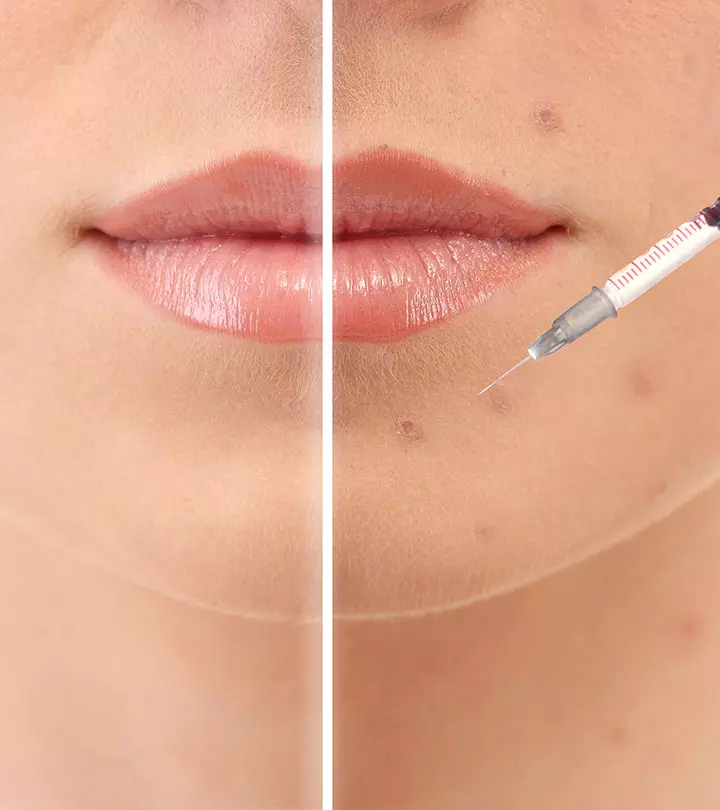
Image: Shutterstock
It may be time for you to get a cortisone shot for acne if your pimples have become painful and uncomfortable and show no signs of going away. Acne, regardless of type, can be difficult to manage, but cystic pimples are a different issue. They are excruciating to touch, difficult to get rid of, and take an eternity to disappear. That is why cortisone injections are seen as a turning point for people with cystic acne.
Cortisone injections were introduced in dermatologic therapy in 1961. They have been used extensively since then to treat various skin conditions (1). Acne cysts are one of the most prevalent disorders treated with cortisone shots.
Acne vulgaris is a pretty common condition that affects up to 80 % of adolescents (2). It can have a negative impact on the mental health of the individual as it leaves behind unsightly scars and pigmentation, leading to immense psychological distress (3), (4).
It has also been found that anxiety and depression are more common in patients with acne (5), (6), (7).
Cortisone shots can be given as acne medication to the patient in the early stages to prevent unsightly scarring and discoloration.
In this article, we have discussed all about cortisone shots for acne treatment. Keep reading to find out more!
 Trivia
TriviaIn This Article
What Is A Cortisone Shot?
Steroids are a class of medication that regulate diverse cellular functions, like inflammation (8). Due to their anti-inflammatory action, steroids are one of the most widely prescribed drugs in the world (9).
In dermatology, the most commonly used cortisone preparation is triamcinolone acetonide. These injections are a standard mode of treatment for many skin diseases like keloids, acne, and alopecia areata (10).
Cortisone injections deliver steroids directly into skin lesions.
The cortisone is deposited in the skin to be delivered over a period, resulting in prolonged therapy while minimizing the adverse effects of systemic therapyi A type of treatment based on the medicine traveling through the bloodstream to reach all the affected areas of the body. . This treatment is extremely effective, easy to perform, and relatively safe.
Jill Schneiderman, a blogger, recalls her personal experience of dealing with adult acne and figuring out ways to remove the zits and pimples. Her exploration of treatments and medication included taking a cortisone shot as well. She adds, “You can also get a cortisone injection, which I often did, to help the blemish disappear in a day or two, but to say the shot is painful is an understatement. It’s like someone is injecting you with fire – however, the good news is, that the pain only lasts for about 3 seconds (i).”
 Did You Know?
Did You Know?When And Where To Get A Cortisone Shot?
Cortisone shots are given to provide rapid relief from nodulocystic acne – an advanced stage of acne characterized by multiple cysts, nodules, and scars (11).
You can also get them if you want to treat a single painful acne cyst quickly. Always get your steroid shot from a certified dermatologist as only they are skilled enough to inject the medication in the proper manner and dosage.
No special preparation is required for this procedure. It is done at the clinic and can take 5 to 15 minutes. You need to inform your doctor if you have any allergies or are on any blood-thinning medication, such as aspirin or warfarin, as they can increase the chances of bruising at the site of injection. A dressing might be placed over the area, which can be removed after a few hours.
A Word Of Caution
Never get a cortisone shot at the same spot within three weeks as it may cause some side effects. Triamcinolone acetonide is a long-acting steroid that remains at the site of injection long enough to produce a substantial anti-inflammatory effect. Therefore, you don’t need to inject it into the same area repeatedly within a short span of time..
What Is The Mechanism Of Action Of Cortisone Shots?
An acne cyst is a nidus of pusi A focus point where the growth of bacteria multiplies and results in an outgrowth or bump filled with pus. and inflammatory cells accompanied by extensive skin inflammation. Cortisone injections are given to curb this inflammation. They decrease the inflammatory cells at the site of the lesion. When the inflammation goes down, so does the pain and the size of the cyst (12).
If you are wondering how long you need to wait to see the results, check out the section below.
How Long Does It Take For A Cortisone Shot To Work?
The time taken for a cortisone shot to show results generally varies from individual to individual, but you can expect some improvement in the skin in about a week. While symptoms like redness, pain, and inflammation may not subside instantly after getting the shot, they will gradually alleviate in two to three days. However, if you do not notice any such change or decrease in skin inflammation even after a week, consult your doctor.
While cortisone injections can provide relief from cysts, are they suitable for everyone? Continue reading to find out.
Are Cortisone Shots For Everyone?
Cortisone shots can be taken by anyone who wants to get rid of a cyst quickly. However, avoid getting multiple injections in a single sitting in case of extensive lesions.
These shots can be taken by everyone, including pregnant and lactating women. They can be taken by people of any age, though the pain and fear of needles may be a deterrent for children.
These injections should be avoided by anyone who is allergic to triamcinolone acetonide. Avoid injecting sites where there is a fungal or viral infection on or around the lesion.
What Are The Benefits Of Treating Acne With Cortisone Shots?
Cortisone shots offer more benefits than other medications for acne prevention and treatment.
Firstly, when topical medications fail, these injections penetrate deep into your skin and treat deep-seated conditions.
Secondly, oral medication may have some general side effects on your body. Injecting the medicine at the site of the lesion keeps it confined in that area.
Thirdly, they treat acne more quickly, saving your skin from scars and pigmentation.
But, the big question remains…
Are There Any Side Effects Of Cortisone Shots?
When these steroids are not injected in a proper manner or in the correct dosage, it can lead to certain side effects:
• It may cause thinning of skin (known as atrophy), leading to a slight indentation at the site of injection.
• It may cause hypopigmentation, i.e., lightening of skin at the site of injection.
• It may cause telangiectasia, i.e., the blood vessels around the site of injection may become more visible than normal (13).
• In very rare cases, it may cause an allergic reaction if the patient is allergic to any of the components of the injection.
Keep in mind that any atrophic scars or hypopigmentation caused by cortisone injections are fairly permanent and very difficult to get rid of.
Therefore, it is imperative that you get these shots from a dermatologist who knows how to dilute the steroids in the proper concentration and inject them at the proper site of the lesion.
Cortisone Shots – After-Care
Once you get your shot, you don’t need to do much except just wait for the zit to subside. Your doctor may prescribe an antibiotic cream that you need to apply for a few days.
Avoid touching the lesion and don’t apply any other cream apart from what your doctor has prescribed.
How Much Do Cortisone Shots Cost?
A cortisone shot can range from anywhere between $25 to $100 per sitting. This includes the cost of the medication and syringe. However, your doctor may quote a different price based on their expertise and experience.
Cortisone Shots At Home
We would strictly advise you not to attempt to give yourself a cortisone shot at home. Always get procedures done by a dermatologist who has the proper knowledge and skill to perform such procedures.
Also, only a dermatologist can assess your lesions and make an informed decision on the course of action that needs to be followed.
As mentioned above, if the injections are not injected in the correct dosage or the precise place, they can lead to atrophy of the skin and/or hypopigmentation. Therefore, always make it a point to consult a dermatologist.
When used cautiously, cortisone injections are a simple and fairly safe procedure that is an integral part of dermatology. The procedure does not require a lot of time and can be done in minutes. It does not cost much and may help you get rid of huge, painful pimples in a matter of a few hours to a few days while preventing unsightly acne scars and pigmentation.
Whether you get pimples occasionally and want a quick fix or are experiencing a more advanced stage of acne, like nodulocystic acne, cortisone shots could be the key to gaining freedom from those zits.
Infographic: A Simple Guide To Cortisone Shots For Acne
Acne is not only painful and uncomfortable, but it can affect your confidence and self-esteem. It may be hard to deal with, but luckily, cortisone shots are a quick, safe, and effective way of treating severe acne. Check out the infographic below for a simple yet comprehensive guide on this treatment to help you make an informed decision.

Illustration: StyleCraze Design Team
Cortisone shots are a boon to people with cystic acne. These shots inject steroids directly into skin lesions and help manage acne breakouts. Using cortisone shots for acne is an effective, easy, and safe technique. It helps manage skin inflammation and decreases the cells at the site of the lesion. You can take this shot without any special preparation, and it will be done in 5 to 15 minutes. Though anyone can take this injection, people allergic to triamcinolone acetonide should avoid it. Since it is not advisable to get this done at home, you should visit a doctor to perform this procedure.
Frequently Asked Questions
Can I wash my face after a cortisone injection?
The doctor will cleanse your skin and may cover the injected area for protection. If you have any questions about aftercare following a cortisone shot, ask your doctor as they can give you some tips based on your skin type.
Where is the most painful place to get a cortisone shot?
The palms and soles of the feet are the most painful places to get cortisone shots.
Does cortisone cause weight gain?
Cortisone may affect your metabolism rate, which may result in weight gain.
Does a cortisone shot hurt afterward?
You may feel discomfort or tenderness in the injected area for about a day or two, but the discomfort will subside.
Do cortisone shots cause hair loss?
While hair loss is a side effect of some steroidal treatments, cortisone shots usually stimulate hair regrowth and are used to treat alopecia areata.
Does cortisone stay in your body forever?
The effects of cortisone shots last for about 2 months if the right skin care routine and aftercare tips are followed.
Can a cortisone shot affect your heart?
High doses of cortisone may cause heart issues like heart arrhythmiai A condition that causes an irregular, fast, or slow heartbeat resulting in chest pain or dizziness. .
Is cortisone a steroid?
Yes. Corticosteroids, like cortisone, are known as anti-inflammatory steroids.
Do cortisone injections weaken the immune system?
Yes, cortisone may weaken the immune system.
Key Takeaways
- Cortisone injections were first used in dermatology in 1961 and have since been widely utilized to treat various skin problems, including acne cysts.
- Cortisone injections deliver steroids into the skin lesions. They are highly effective, simple to administer, and relatively risk-free. The procedure is performed at the clinic and takes 5 to 15 minutes.
- However, if you have a lot of lesions, you should avoid getting multiple injections in one sitting.
- Also, anyone who is allergic to triamcinolone acetonide should avoid these injections.
Cortisone shots can help reduce acne inflammation and clear up your skin. Learn more in this video!
Personal Experience: Source
StyleCraze's articles are interwoven with authentic personal narratives that provide depth and resonance to our content. Below are the sources of the personal accounts referenced in this article.
i. Not By The Zit on My Chinny Chin Chinhttps://jillschnei.wordpress.com/2018/05/02/not-by-the-zit-on-my-chinny-chin-chin/
References
Articles on StyleCraze are backed by verified information from peer-reviewed and academic research papers, reputed organizations, research institutions, and medical associations to ensure accuracy and relevance. Read our editorial policy to learn more.
- Intralesional drug therapy in dermatology, Indian Journal of Dermatology, Venereology and Leprology.
https://www.ijdvl.com/article.asp?issn=0378-6323;year=2017;volume=83;issue=1;spage=127;epage=132;aulast=Deshmukh - Epidemiology of acne vulgaris, Journal der Deutschen Dermatologischen Gesellschaft, US National Library of Medicine, National Institutes of Health.
https://www.ncbi.nlm.nih.gov/pubmed/16503926 - Dermatology life quality index in Thai patients with acne, Siriraj Medical Journal, Mahidol University.
https://he02.tci-thaijo.org/index.php/sirirajmedj - Consequences of psychological distress in adolescents with acne, The Journal of Investigative Dermatology, US National Library of Medicine, National Institutes of Health.
https://www.ncbi.nlm.nih.gov/pubmed/21228811 - Disease-specific quality of life is associated with anxiety and depression in patients with acne, Journal of the European Academy of Dermatology and Venereology, US National Library of Medicine, National Institutes of Health.
https://www.ncbi.nlm.nih.gov/pubmed/15196157 - Comparison of anxiety and depression in patients with acne vulgaris and healthy individuals, Indian Journal of Dermatology, US National Library of Medicine, National Institutes of Health.
https://www.ncbi.nlm.nih.gov/pmc/articles/PMC3051295/ - Prevalence of mental health problems in acne patients, Journal of Ayub Medical College, Abbottabad, US National Library of Medicine, National Institutes of Health.
https://www.ncbi.nlm.nih.gov/pubmed/11873431 - Antiinflammatory action of glucocorticoids –new mechanisms for old drugs, The New England Journal of Medicine.
https://www.semanticscholar.org/paper/Antiinflammatory-action-of-glucocorticoids–new-for-Rhen-Cidlowski/d138afb089729bf3c4461d201b43612e07587c4b?p2df - Mechanisms involved in the side effects of glucocorticoids, Pharmacology & Therapeutics, US National Library of Medicine, National Institutes of Health.
https://www.ncbi.nlm.nih.gov/pubmed/12441176 - Standard guidelines of care: Keloids and hypertrophic scars, Indian Journal of Dermatology, Venereology and Leprology, US National Library of Medicine, National Institutes of Health.
https://www.ncbi.nlm.nih.gov/pubmed/21220896?dopt=Abstract - Nodulocystic acne, DermNet NZ, DermNet New Zealand Trust.
https://dermnetnz.org/topics/nodulocystic-acne/ - The role of inflammation in the pathology of acne, The Journal of Clinical and Aesthetic Dermatology, US National Library of Medicine, National Institutes of Health.
https://www.ncbi.nlm.nih.gov/pmc/articles/PMC3780801/ - Triamcinolone acetonide intralesional injection for the treatment of keloid scars: patient selection and perspectives
https://www.ncbi.nlm.nih.gov/pmc/articles/PMC6063260/ - Therapeutic efficacy of intralesional triamcinolone acetonide versus intralesional triamcinolone acetonide plus lincomycin in the treatment of nodulocystic acne, Indian Journal of Dermatology, Venereology and Leprology.
https://www.ijdvl.com/article.asp?issn=0378-6323;year=2003;volume=69;issue=3;spage=217;epage=219;aulast=Mahajan - Corticosteroids during pregnancy, Scandinavian journal of rheumatology. Supplement., US
National Library of Medicine, National Institutes of Health.
https://www.ncbi.nlm.nih.gov/pubmed/9759153
Read full bio of Dr Ashok Gund
Read full bio of Anjali Sayee
Read full bio of Shiboli Chakraborti





